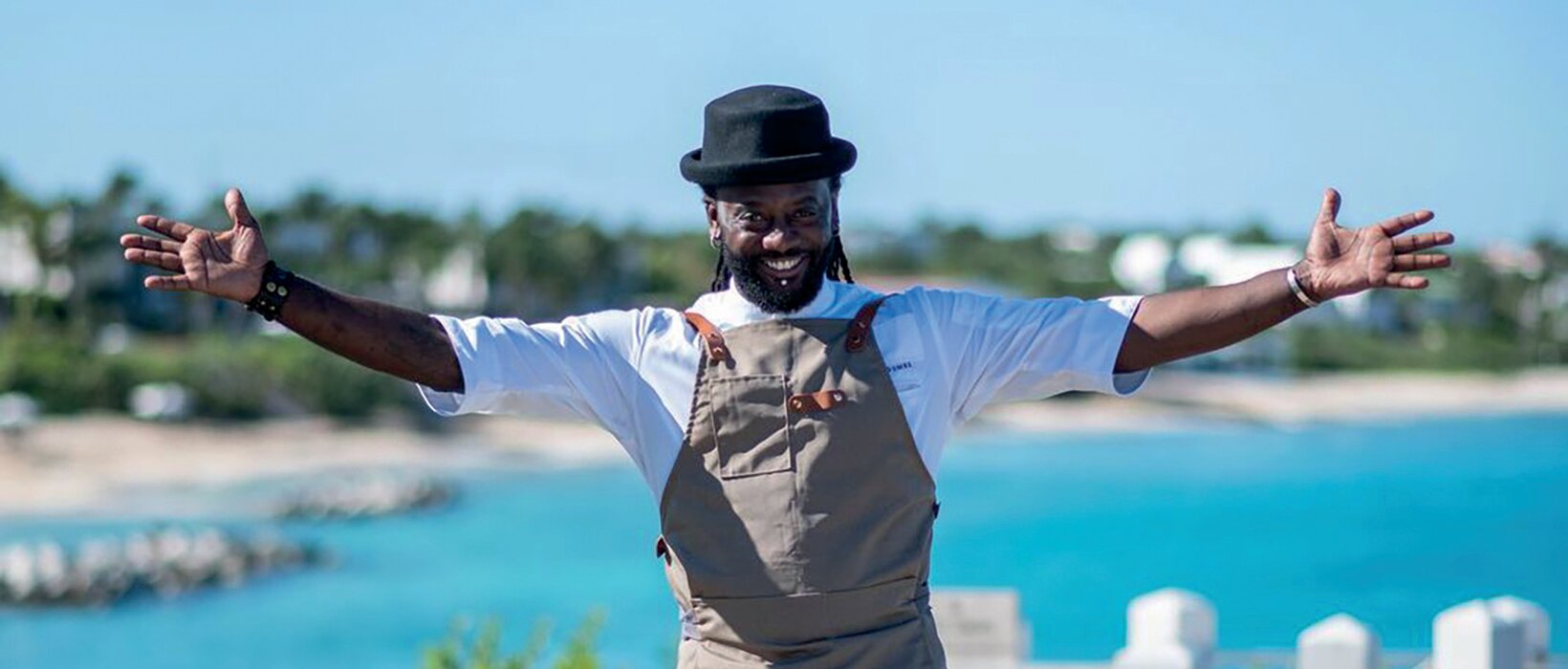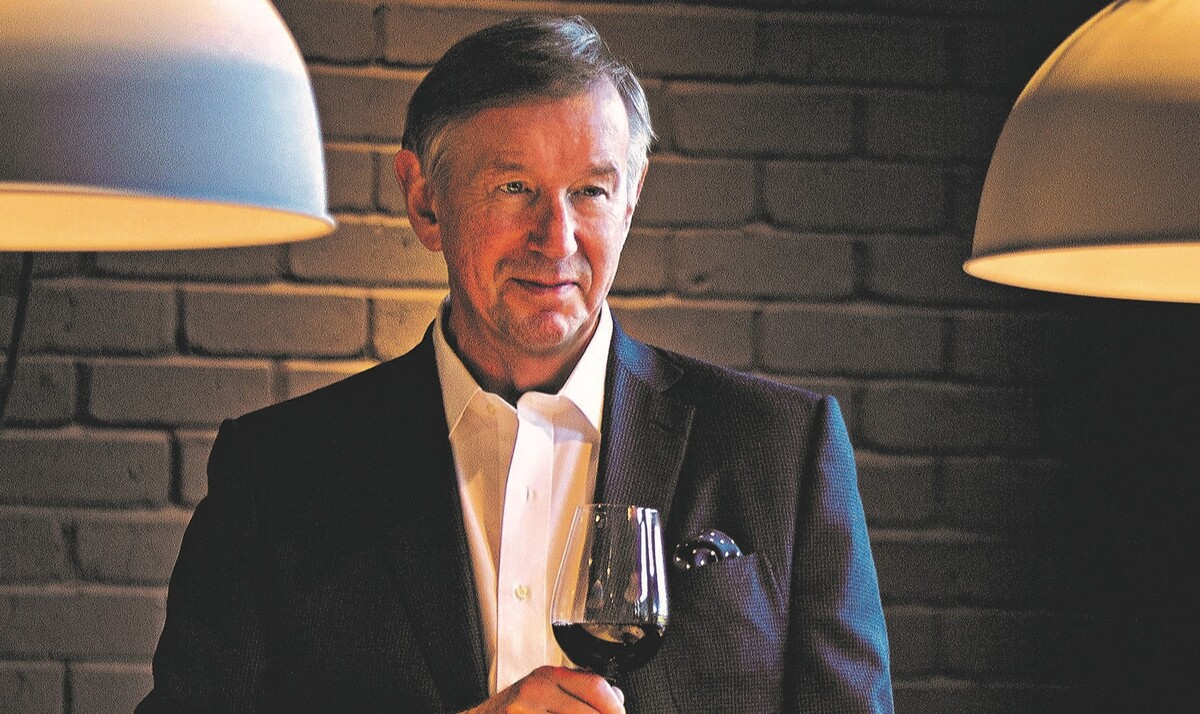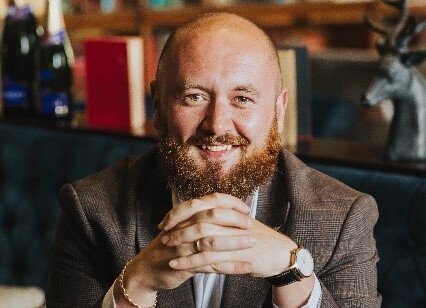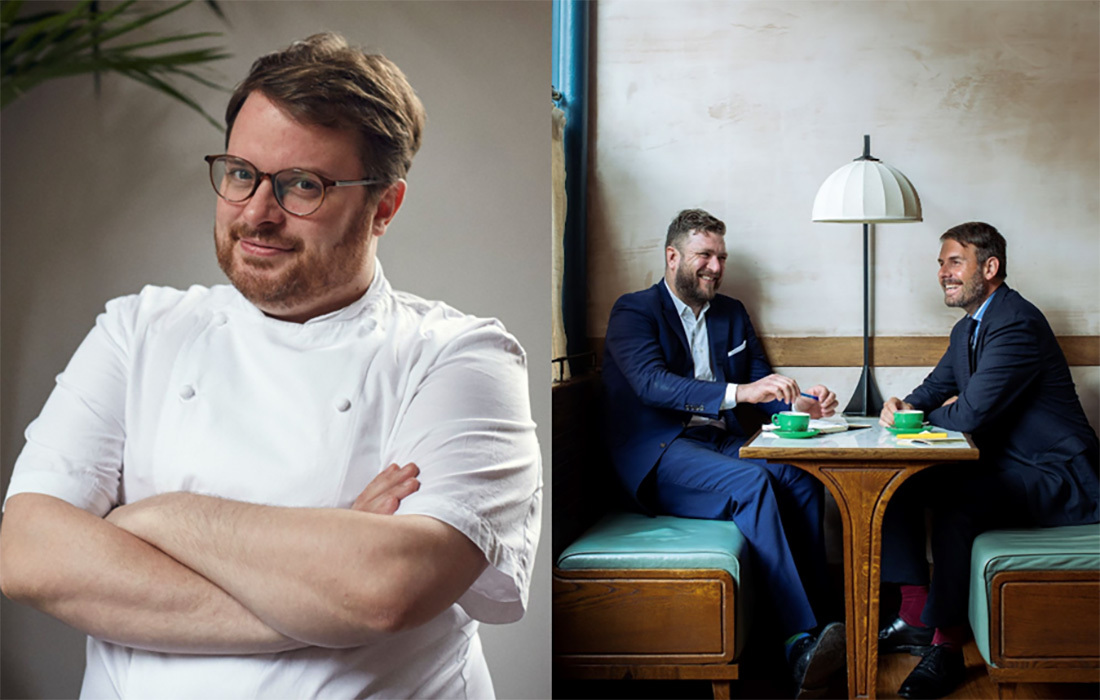Kerth Gumbs on cooking flavours of his youth and looking beyond Black History Month
Kerth Gumbs, who caused a sensation on Great British Menu and at Boiler & Co with his Caribbean fine dining, is ready for his new venture to “touch many hearts and souls”. He talks to Jimi Famurewa, having finished filming Young MasterChef.
When you think of acclaimed chefs, it’s likely that you do not immediately associate them with the hunting and capturing of wild goats. But in this, as in many other things, Kerth Gumbs is proudly a man apart. “We used to run them into the bushes, catch them and sell them for butchering,” says the Anguilla-born chef, with a smile, remembering the realities of his rural upbringing on the tiny Caribbean island.
“There’d be about six of us, jumping on its back legs to stop it wriggling. And then we’d get $10 for each goat. Depending on how much the butcher wanted to rip us off because we were young.”
You could hardly hope for a clearer example of how dramatic Gumbs’ career trajectory has been – or the wild extremes that he has experienced in the 20 years or so since he was a teenager, chasing his bleating quarry into the undergrowth. Though he has ticked off many of the professional prerequisites for classically trained chefs – establishing himself in Michelin-starred kitchens, forging his reputation as head chef at Ormer Mayfair, and appearing on Great British Menu in 2020 – he has always had a justified sense of outsiderdom. And, right from the moment he arrived in London in 2004 to study at Le Cordon Bleu, from a “dot on the map” with just 15,000 inhabitants, life and work has been attended by simultaneous culture shocks.
“I’d never seen a train, I’d never seen a bus,” he remembers, signature dreads peeking out from a cream trilby as we chat over breakfast in Mayfair’s Hide. “When I first arrived it was January, so when I left the airport I could see the air come out of my mouth.”
Much of Gumbs’ disorientation as he made his way in the hospitality industry in subsequent years sprang from being a minority, both ethnically and culturally.
“It was hard being the only Black chef in the kitchen and for the first maybe six years, no one could understand what I was saying,” he explains, in his raspy Anguillan lilt. “At [Le Cordon Bleu] everyone would answer saying ‘Oui, chef’. And I would reply saying, ‘Yes, I.’” He chuckles. “I got tired of repeating myself though, so I had to slow it down and change the accent a little bit.”
Judgement day
It makes sense that, quite apart from the fact that Black History Month is rightly bringing issues of representation to the fore, Gumbs should be in a reflective mood. After more than 15 years of steady, linear career progression, late 2022 marks a period of seismic professional transition for the 36-year-old. The more obviously positive expression of this is that a new TV job is about to raise his profile significantly. Alongside fellow classically trained chef Poppy O’Toole (aka TikTok star Poppy Cooks), Gumbs has recently completed filming as a judge on BBC Three’s Young MasterChef, a spin-off of the competitive cooking juggernaut aimed at 18- to 25-year-olds.
“Honestly, I went in and I didn’t think the level [of cooking] would be as high as it was,” he says. “But even though these guys haven’t been in kitchens that long, they’re already very adventurous cooks. They’re using social media but also balancing it with that cheffy world. They’re just starting their lives, just coming out of college, but the way they were cooking, I was just like, ‘What!?’”
The flip side to this is that, for the first time in a long time, he finds himself not working in a professional kitchen. Having left Ormer Mayfair (where he had worked under executive chef Shaun Rankin since its 2016 launch) in 2021, he began the year as the launch head chef of Boiler & Co, an ambitious Bankside restaurant and bar established on the site of what was once Camino, and taking broad conceptual influence from the production processes of whisky, beer and coffee. Boiler & Co opened in February, its all-day food offering – particularly the evening-only, seven-course tasting menu experience – serving as a showcase for both Gumbs’ years of classical French training and playful, elevated interpretations of the Caribbean flavours of his youth.
In practice, this meant tamarind-glazed aged duck with an accompanying patty filled with confit meat, a version of the crab ‘Johnny Cakes’ that got him to the Great British Menu final, and soursop ice lollies alongside whisky-soaked gummy bears. By late spring, the informal but ambitious room was garnering a fair bit of industry buzz and favourable notices from fellow chefs.
Which made it all the more surprising when, in mid-June, Boiler & Co’s founders, Adam Carr and Cesar Breton, announced that Gumbs would be leaving the venture. Though the official line was that his ‘residency’ had simply come to an end (this wording was absent from launch literature, but ex-Benares and Gymkhana chef Jitin Joshi has recently been brought in) it seemed an abrupt and unexpected change. And while Gumbs seems reluctant to air the particulars of a conscious uncoupling that is still somewhat in progress, he can’t hide his disappointment at the way things turned out.
“When we came onboard, everybody was understanding of the concept but there was an overambitious mentality,” he says, quietly. “I came in to populate the restaurant and we got a positive response. But, at the same time, you can’t expect to turn a profit in a few months. I did what I feel I was brought in to do.”
One of Gumbs’ main frustrations, it’s clear, is that he feels that, while he was at Boiler & Co, he was on the brink of groundbreaking, meaningful work. Not just in the sense of the intensely personal, Caribbean-inflected fine dining experience he was almost pulling from the ether, but also in relation to the nurturing kitchen culture he was trying to implement.
“One of the things we’ve lost as chefs, and why we can build up frustration, is that we never really have a chance to talk,” he says. “So something I was doing, and had been doing for six years now, is every Saturday after the last service of the week, I get all the chefs to gather in a circle and we all get the chance to speak. I don’t hold any power – they can criticise something I did or it could just be, ‘Guys, it’s only me putting away the vegetables.’ Or, ‘Thank you for helping me earlier when I was feeling sick.’ It’s not about fixing every problem. It’s about bringing awareness, and encouraging people to talk openly so you ultimately save on staff.”
Racing ahead
It’s fair to say that this approach is markedly different to a lot of what Gumbs experienced in his early years as a chef. After graduating from Le Cordon Bleu and the “Yes, I” years, his first job came at Terence Conran’s Quaglino’s, where he was mentored by Julian O’Neill.
“It used to be pumping back in the day,” he notes, flashing a grin. “I stayed there for a while and I was always hungry, eager and very ferocious in the kitchen.”
This ferocity and ambition ultimately speeded his path to working in his first Michelin-starred environment, at Tom Aikens in Elystan Street. And Gumbs found that, strangely enough, some aspects of life in Anguilla – where he had also been a talented sprinter with an athletic scholarship that took him to Canada – had prepared him for this unforgiving, hard-charging environment.
“It was a whole different beast [to Quaglino’s],” he says. “Very aggressive. Very intense. I almost needed that character from back home, that little bit of delinquent behaviour, because you had to be the boss.” It was only a few years later, during a period working for the famously congenial Chris Corbin and Jeremy King at the Wolseley, that Gumbs realised that, in trying to survive and “suck it up”, he may have absorbed some of the wrong lessons about how one should conduct themselves in a kitchen.
“[Corbin and King] was more about people and management and so my character didn’t fit at all because I was too aggressive and too determined,” he says. “I ended up getting in some issues and realised I was keeping myself down and forfeiting promotions by being that way. I had to find the balance of being committed to [making] good food and also being a people person. I couldn’t just fly off the rails and, in a sense, be that angry little Black kid.”
This feels like a pertinent detail. As Gumbs notes, one of the particular stresses for Black chefs – beyond any micro-aggressions or feelings of loneliness that come from being a minority – can be the feeling that your status is conditional and that you’re being judged to an especially high behavioural standard. “It can feel like you have triple the amount of pressures or pushbacks compared to the average chef,” he says. “You’ve got to do much more for the opportunities, and when you’re in there, you’re thankful, but you’re not relaxed.”
This sense of slightly clenched, nervous gratefulness, to Gumbs’ mind, only hampers culinary creativity. “When you’re in that comfort zone, and I don’t mean that in a bad way,” he adds, “that’s when you do your best work. That feeling of being valued means you can do much better for the business.”
Specifically, Gumbs stresses the importance of carrying on these discussions about Black visibility and representation in food long after October has ended. “This needs to be all year round, not limited to a month,” he says. In a practical sense, he’d also love to see more collaborative projects, such as photographer Julian George’s ‘Made You Look’, the 2020 photography project, dinner series and Black talent showcase at Carousel that Gumbs was involved in.
“I found so many new friendships from doing that,” he says. “It would be great to have more structured collaboration. Like a Carousel-style concept so minority chefs can lift each other up as well as give positive exposure.”
It is a version of the self-starting advice he would always give younger chefs during his time leading the kitchens at Ormer Mayfair or Boiler & Co. “Become an asset to yourself,” he says. “That’s what I would always tell my team. Hobbies, side hustles, anything. Whatever knowledge you get is yours to keep and you can apply it later on. That’s yours, and nobody can take it from you.”
Now, of course, Gumbs finds himself in the position of having to heed his own mantra as he plots his next move. Having run a Caribbean pop-up this summer at the Four Seasons Resort and Residence in his native Anguilla, he is keen to plan something similar for next year. Even beyond Young MasterChef, he is also eager to explore the possibility of other TV projects. But, primarily, and despite the disappointment of how his time at Boiler & Co ended, he still wants to find a new home for the restaurant concept he was building there.
“Taking that nostalgia and my own DNA is definitely something that I want to build upon and execute,” he says. “Obviously I need to make sure it’s viable, and I’m in business with people who are true. But I think it has the potential to touch many hearts and souls.”
Of course it won’t be easy. But as he has proven already throughout his varied career, and as the wild goats of Anguilla can attest, Kerth Gumbs is not a man to be underestimated.












